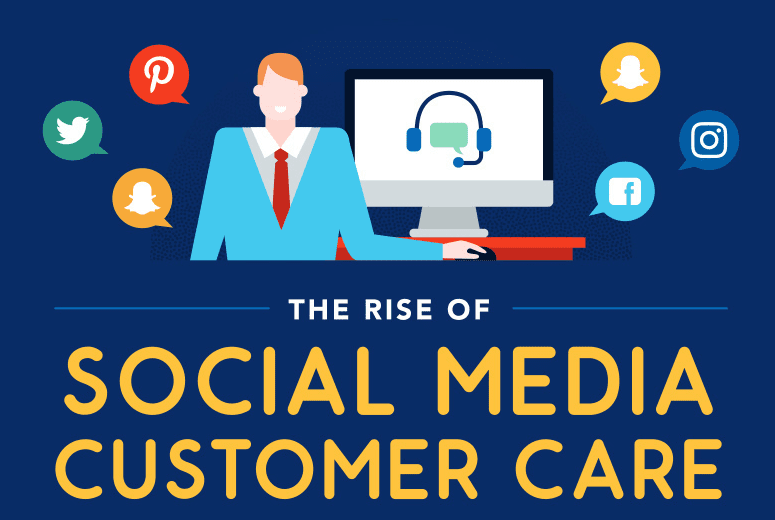In the digital age, the way businesses interact with their customers has undergone a seismic shift. Among the most transformative changes is the rise of Social Media Customer Care. This approach leverages social media platforms to provide customer support, engage with users, and manage brand reputation. As more consumers turn to social media for their customer service needs, businesses must adapt to meet these expectations. This article delves into the growth of Social Media Customer Care, explores emerging trends, and highlights best practices for businesses aiming to excel in this arena.
The Evolution of Customer Care
Traditionally, customer service was confined to phone calls, emails, and in-person interactions. However, the advent of social media platforms like Facebook, Twitter, Instagram, and LinkedIn has revolutionized this domain. Social Media Customer Care has emerged as a critical component of customer service strategies, driven by several factors:
- Instantaneous Communication: Social media allows for real-time interactions. Customers expect quick responses, and businesses that can deliver timely solutions gain a competitive edge.
- Public Visibility: Unlike private emails or phone calls, social media interactions are public. This transparency can enhance a brand’s reputation if managed well or harm it if handled poorly.
- Widespread Reach: Social media platforms have billions of active users. This vast audience provides an unparalleled opportunity for businesses to engage with customers and address their concerns.

Trends in Social Media Customer Care
As Social Media Customer Care continues to evolve, several trends have emerged, shaping how businesses approach this critical function.
1. Integration of AI and Chatbots
Artificial Intelligence (AI) and chatbots are becoming indispensable tools in Social Media Customer Care. These technologies can handle routine inquiries, provide instant responses, and free up human agents to tackle more complex issues. AI-driven chatbots can operate 24/7, ensuring that customer queries are addressed promptly, even outside regular business hours.
2. Personalization
Customers expect personalized interactions. Businesses are leveraging data analytics to understand customer preferences and tailor their responses accordingly. Personalized Social Media Customer Care can enhance customer satisfaction and foster loyalty.
3. Omnichannel Support
Customers may reach out through various social media platforms, and they expect a seamless experience across all channels. Omnichannel support ensures that interactions are consistent, regardless of the platform used. This approach requires integrating social media with other customer service channels to provide a unified experience.
4. Proactive Engagement
Rather than waiting for customers to reach out with issues, businesses are adopting a proactive approach. This involves monitoring social media for mentions of the brand and addressing potential concerns before they escalate. Proactive engagement can prevent negative experiences and demonstrate a brand’s commitment to customer satisfaction.
5. Influencer Collaboration
Influencers wield significant power on social media. Collaborating with influencers for customer care can amplify a brand’s message and reach a broader audience. Influencers can also help address customer concerns and provide authentic endorsements.
Best Practices for Social Media Customer Care
To excel in Social Media Customer Care, businesses must adopt best practices that align with customer expectations and industry standards. Here are some key strategies:
1. Respond Promptly
Timeliness is crucial in Social Media Customer Care. Customers expect quick responses, and delays can lead to frustration. Aim to respond to inquiries within an hour, if possible. Use automated responses to acknowledge receipt of the query and provide an estimated response time.
2. Be Human
While AI and chatbots are valuable, human interaction remains essential. Ensure that responses are empathetic, understanding, and tailored to the customer’s specific situation. Avoid generic responses and show genuine concern for the customer’s issue.
3. Monitor Social Media Channels
Active monitoring of social media channels is vital. Use social listening tools to track mentions of your brand, keywords, and relevant hashtags. This enables you to identify and address issues promptly, even if the customer hasn’t directly tagged your brand.
4. Maintain Consistency
Consistency is key to building trust. Ensure that your brand voice and messaging are uniform across all social media platforms. Train your customer care team to adhere to brand guidelines and provide consistent responses.
5. Resolve Issues Publicly, When Appropriate
If a customer raises a concern publicly, it’s often best to address it publicly. This demonstrates transparency and shows other customers that you are committed to resolving issues. However, for sensitive matters, move the conversation to a private channel while acknowledging the issue publicly.
6. Gather and Utilize Feedback
Social media interactions provide valuable insights into customer sentiment. Gather feedback from these interactions and use it to improve your products, services, and customer care processes. Regularly analyze customer feedback to identify trends and areas for improvement.
7. Educate and Empower Your Team
Equip your Social Media Customer Care team with the necessary tools, training, and authority to resolve issues efficiently. Empower them to make decisions that benefit the customer and reflect positively on the brand.
8. Leverage Analytics
Use analytics to measure the effectiveness of your Social Media Customer Care efforts. Track key metrics such as response time, resolution time, customer satisfaction, and engagement rates. Analyzing these metrics can help you identify strengths and areas for improvement.
Conclusion
The growth of Social Media Customer Care is a testament to the evolving landscape of customer service. As more consumers turn to social media for support, businesses must adapt to meet their expectations. By embracing emerging trends such as AI integration, personalization, omnichannel support, proactive engagement, and influencer collaboration, businesses can enhance their Social Media Customer Care efforts.
Adopting best practices, including prompt responses, human interactions, active monitoring, consistency, public resolution, feedback utilization, team empowerment, and analytics, can further elevate customer satisfaction and brand loyalty. In a world where customer experience is paramount, excelling in Social Media Customer Care is not just an option—it’s a necessity.










